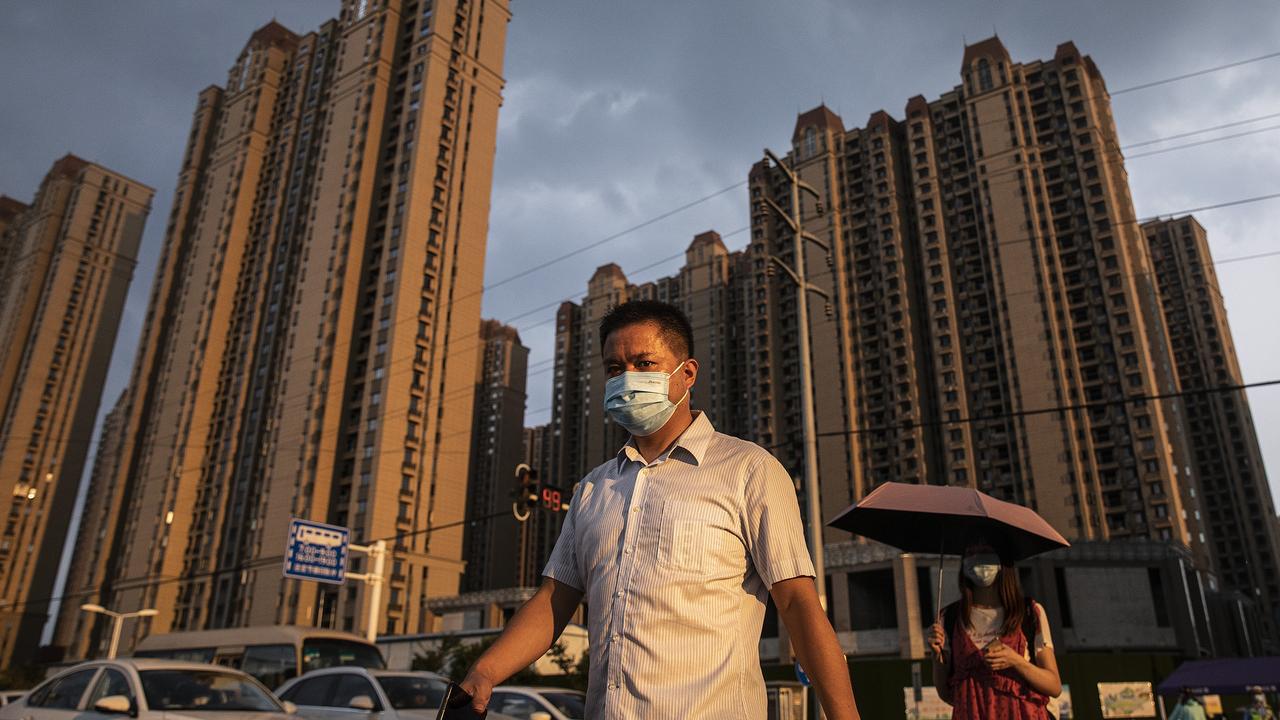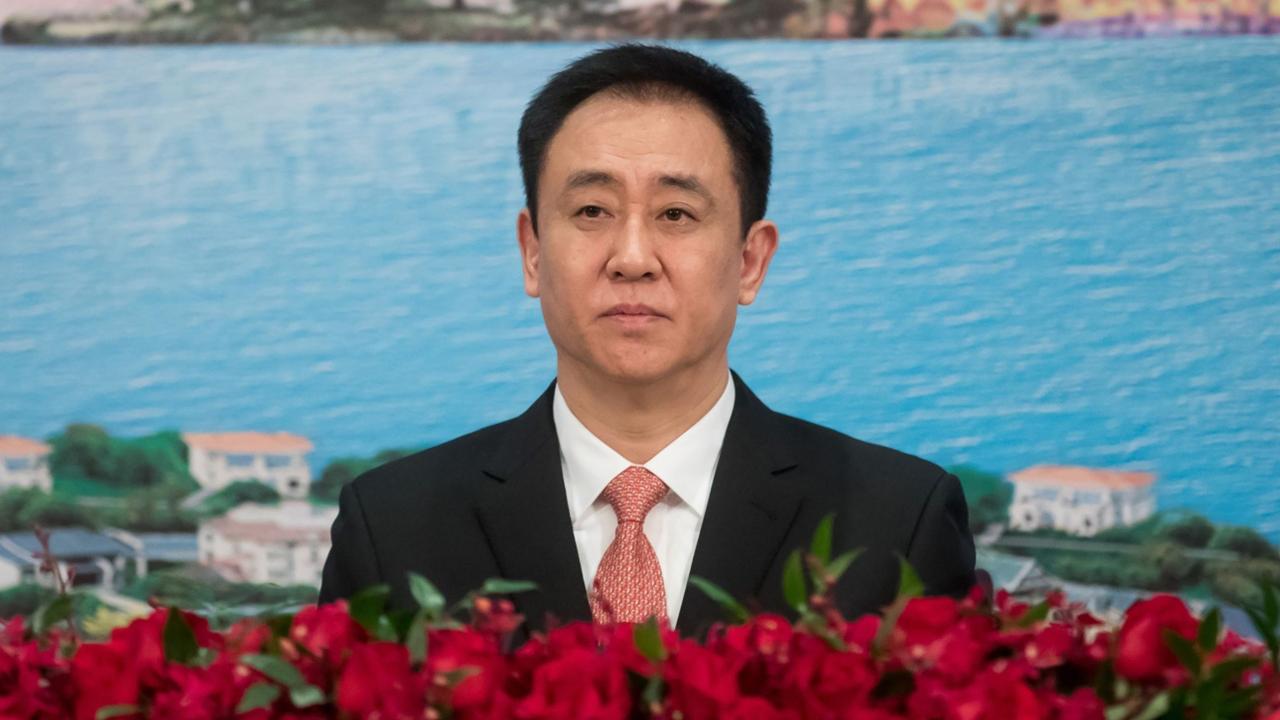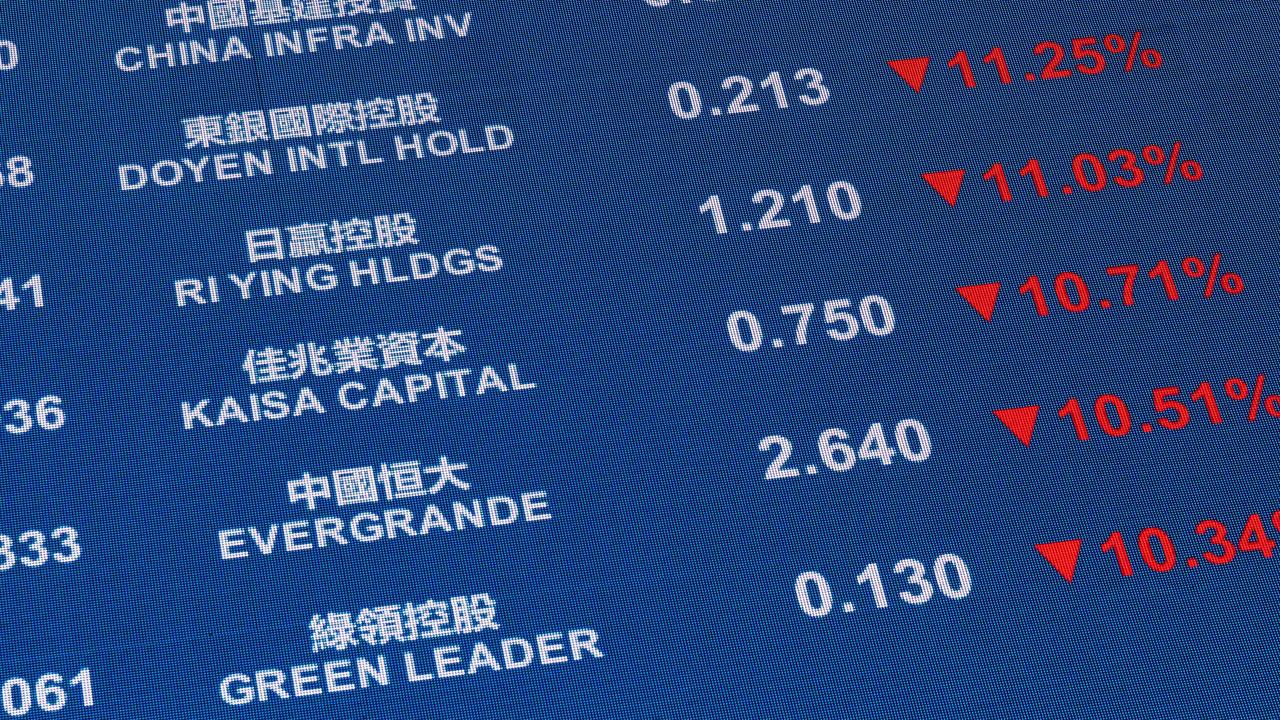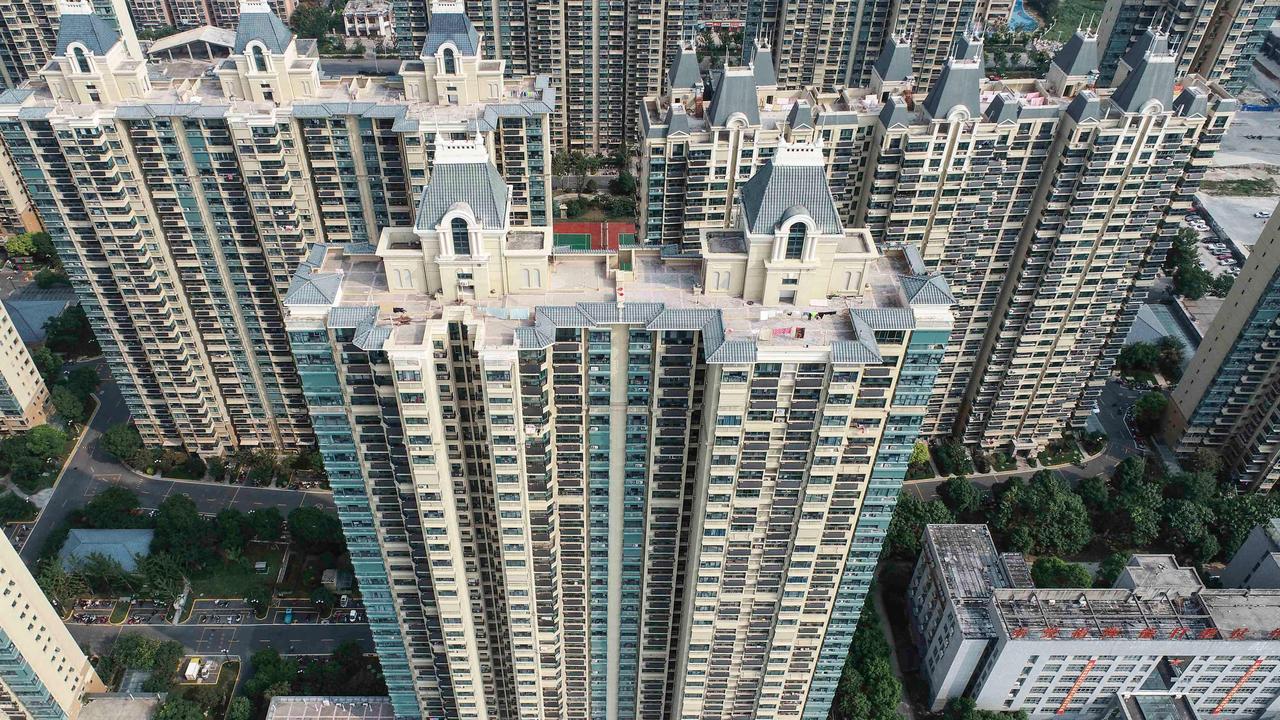How Evergrande keeps avoiding default with unexplained, last-minute moves
Teetering on the brink of collapse, the Chinese real estate titan Evergrande somehow keeps avoiding the worst with last-minute moves.
Ailing real estate titan Evergrande stared down its biggest test since its debt crisis began this week, when it faced a major payment deadline.
The Chinese property juggernaut has been teetering on the brink of collapse for months after racking up staggering debts worth $A420 billion.
On Wednesday, another 30-day grace period for coupon payments for three dollar bonds – worth $A200 million – came to an end, with the firm missing initial interest deadlines on those in October.
There was widespread speculation that Evergrande would fail to pay up, and therefore trigger cross-default clauses among the builder’s $19.2 billion of outstanding dollar notes, according to Bloomberg.
Stream more world news live & on demand with Flash, Australia’s biggest news streaming service. New to Flash? Try 14 days free now

But in a shock last-minute move, Evergrande managed to rustle up the cash to meet its obligations and survive for another day.
It’s not the first time Evergrande has pulled off a similar feat, with the company making a string of eleventh-hour payments in recent months to avoid calamity time and time again.
But how exactly are they doing it?
Evergrande’s mystery move
The New York Times has weighed into this deepening mystery, explaining that had Evergrande missed Wednesday’s payments, it would have “triggered a default that could ripple through the Chinese economy”.
But that didn’t happen.
“Instead, the company has managed to leap from one deadline to the next, meeting its obligations at the last minute – but often without explaining how or even publicly disclosing that it had done so,” the Times writes.

Evergrande has previously attempted to sell off parts of the business to raise the cash, but just last month, a plan to sell a multibillion-dollar slice of its property services arm fell through, prompting Evergrande to announce in a securities filing there was “no guarantee” it would be able to meet its payment deadlines.
Evergrande’s billionaire founder, Xu Jiayin (also known as Hui Ka Yan), has also been urged to dip into his personal, vast wealth to pay down debts and salvage the company.
But so far, there is little evidence to suggest that has actually happened.
Evergrande has repeatedly ignored media requests for comment regarding the payments, and has provided few public details regarding the crisis and the company’s plan to fix it.
There have also been whispers that the Chinese government has intervened in the Evergrande nightmare, although again, there’s little solid confirmation outside of vague promises downplaying the risk posed by a potential collapse.
‘On tenterhooks’
IG markets analyst Kyle Rodda told news.com.au he believed that while there was no clear evidence yet, it was likely that Evergrande was scrambling to sell off assets, and that authorities were probably trying to co-ordinate deals “behind the scenes”.
“Looking at their financials, liquidity is an issue for the company, so it’s unlikely they are paying with their own cash,” he said.
“Conceivably, the money could be coming from the personal wealth of Hui Ka Yan. This hasn’t been disclosed publicly, and there’s no evidence I have seen that this is happening, but China’s government has made public statements that they see it appropriate that this occurs, so it probably can’t be discounted.”
Mr Rodda said he suspected Evergrande was not following a “deliberate strategy”.
“I think the company is probably on tenterhooks, and doing what it can to cover its liabilities,” he said.
“I think it shows the stress on the business, and the precarity of it as it teeters on default.
“My strongest suspicion would be that the money (used to meet repayments) can be tied back to either central or provincial authorities.
“They would be the most stable source of liquidity for the company, and would have the ability, not to mention the incentive, to ensure the company meets its obligations.”
But he said if that were the case, there was some “duplicity” involved.
“China’s authorities don’t want to look like they’re bending to a big, bloated, reckless private business by bailing them out,” he said.
“At the same time, they can’t afford panic in their financial system or volatility in their markets, caused by some liquidity crunch or even worse, some cascade of defaults through the property market.

“This kind of defines the likely end game for Evergrande – a sort of controlled crash where contagion is limited and doesn’t spill into the broader financial system or leads to some property crash.”
Mr Rodda said a “total collapse” of Evergrande would be “dreadful” for global financial markets, including Australia’s, because “although it’s perhaps not a systemic risk for the global financial system, it would lead to major stress, market volatility and a huge slowdown in China’s economy”.
“The more likely outcome is of a slow-burn bailout where the company is shrunk down to size and its assets sold to stabler institutions, under the pressure of the central government,” he predicted.
“At this point, the question is how much it slows China’s growth, as real estate activity drops, construction activity subsequently slows, and demand for raw materials falls.
“That would impact the Australian economy considerably, because it would lead to a drop in demand for steel and therefore iron ore.”
China’s ‘risks’ to global economy
And in another sign of the growing seriousness of the Evergrande fiasco, the US Federal Reserve this week confirmed China’s struggling real estate industry could significantly impact America.
“Given the size of China’s economy and financial system as well as its extensive trade linkages with the rest of the world, financial stresses in China could strain global financial markets through a deterioration of risk sentiment, pose risks to global economic growth, and affect the United States,” it said in an update on the US financial system.

Crisis ‘hardly over’
While Evergrande’s latest eleventh-hour miracle was welcome news, Bloomberg has stressed that “the crisis at Asia’s largest junk bond issuer is hardly over”.
It reported that two holders of other dollar notes sold by Evergrande also haven’t received payment for coupons officially due Saturday, but which now have a 30-day grace period.
And there’s growing signs the chaos is spreading, as “a string of other developers have also fallen into distress amid a crackdown on speculation and leverage following years of debt-fuelled expansion”, with the “contagion” now spreading into other parts of the credit market.





